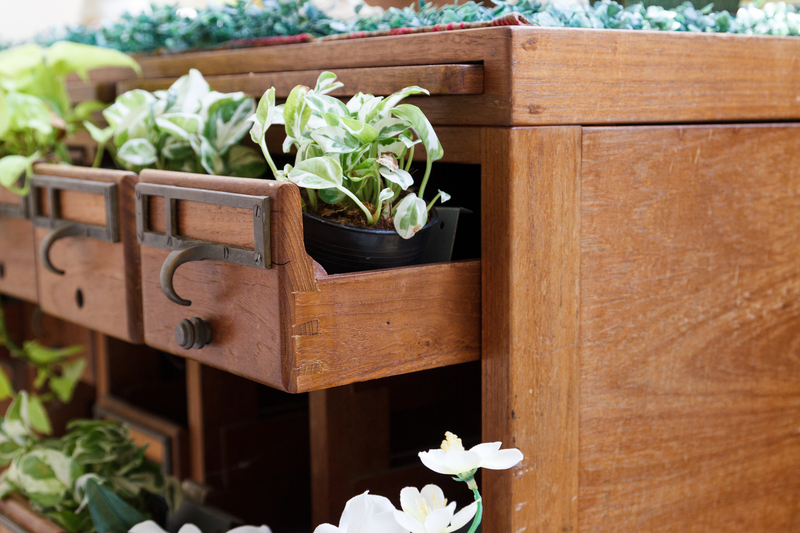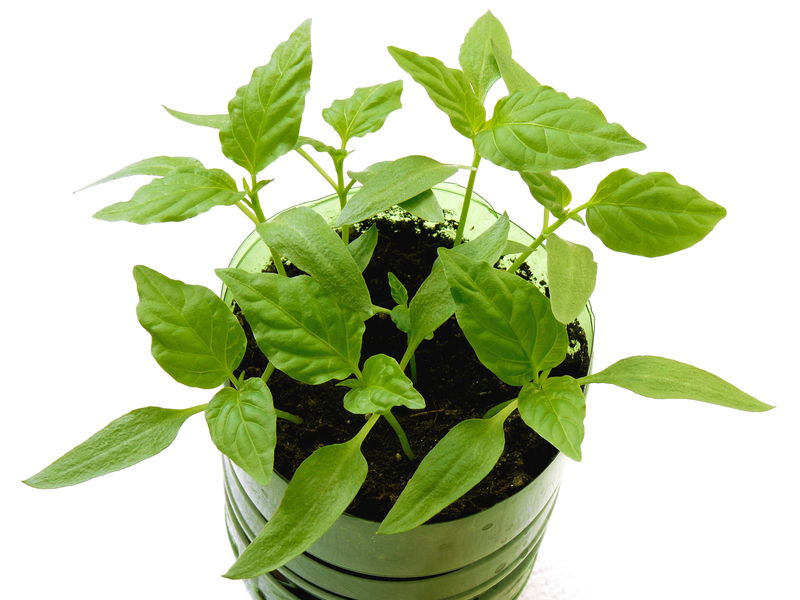Guidelines for Recycling Your Cookware: A Comprehensive and Eco-Friendly Guide
Cookware, an essential part of every kitchen, includes pots, pans, baking trays, and utensils made from various materials. Over time, cookware can get damaged, worn out, or simply replaced with newer models. Instead of tossing old or unusable pots and pans in the trash, recycling your cookware is an eco-smart decision that benefits both your household and the environment. In this detailed guide, we'll discuss how to recycle cookware responsibly, what materials can be recycled, and where to bring your cookware for proper disposal or even upcycling.

Why Should You Recycle Your Cookware?
Every year, tons of metal, ceramic, and even nonstick-coated cookware end up in landfills, contributing to pollution and wasted resources. Recycling cookware not only reduces landfill waste but also conserves valuable resources used in manufacturing new products. Many types of cookware can be recycled or even upcycled for creative uses. By following proper cookware recycling guidelines, you help protect the environment and promote sustainable living.
Environmental Benefits of Cookware Recycling
- Reduces landfill waste: Old cookware often contains materials that do not decompose easily, such as metals and synthetic coatings.
- Conserves raw materials: Recycling metals like aluminum and stainless steel saves natural resources and reduces mining impacts.
- Decreases pollution: Extracting and processing metals for new cookware generates air and water pollution, while recycling minimizes these effects.
- Lowers energy usage: Recycling metal uses less energy than manufacturing from raw ore.
What Types of Cookware Can Be Recycled?
Before recycling, it's essential to understand which cookware materials are recyclable. Not all pots and pans are created equal, and different materials require unique recycling methods.
Common Recyclable Cookware Materials
- Stainless Steel: Highly durable and 100% recyclable. Most recycling centers accept stainless steel cookware with or without handles.
- Aluminum: Lightweight and also widely accepted. Aluminum cookware, including baking sheets and pans, is easy to recycle.
- Copper: Valuable and highly sought after by scrap yards. Copper pans and utensils are recyclable.
- Cast Iron: Exceptionally heavy and long-lasting, cast iron can be melted down for reuse.
Materials That Are Difficult to Recycle
- Nonstick or Teflon-coated pans: These pans may contain chemicals and coatings that complicate the recycling process. Specialized facilities may accept them.
- Glass and Ceramic Cookware: Tempered glass (like Pyrex) and glazed ceramic are not always accepted at regular recycling centers. Check local guidelines.
- Plastic Handles and Accessories: These may need to be separated or discarded if they cannot be recycled locally.
Step-by-Step Guidelines for Recycling Your Cookware
Ready to recycle your old cookware? Here's a step-by-step process to make sure you're handling your kitchen clutter in the most responsible way:
1. Assess the Condition of Your Cookware
- Is it still useable? If your cookware is in decent condition, consider donating to charity, local shelters, or offering it on neighborhood social media sites.
- Is it broken, warped, or heavily scratched? If so, proceed with recycling.
2. Identify the Cookware Material
- Look for markings on the base (stainless steel, aluminum, etc.).
- Determine if the pan is coated (e.g., nonstick/Teflon); this affects recycling options.
- Check for accessories like glass lids or removable plastic handles.
3. Prepare Cookware for Recycling
- Clean thoroughly: Remove all food residues and wash the cookware.
- Remove non-metal parts: Unscrew and dispose of plastic, wood, or rubber handles and knobs if required by recycling guidelines.
- Separate materials: If possible, separate glass lids from metal bodies, and recycle them according to local glass guidelines.
4. Find a Local Recycling Option
Not all curbside recycling programs accept cookware, especially if it's made from mixed or specialty materials. Here are some alternatives:
- Local Scrap Yards: Metal pans, especially made from aluminum, stainless steel, copper, or cast iron, are valuable to scrap metal dealers. Many accept old cookware and may even pay a small amount.
- Municipal Recycling Centers: Some city recycling depots accept a broader range of metals than curbside bins. Check their accepted materials list.
- Manufacturer Take-Back Programs: Some cookware brands offer recycling or trade-in programs. Brands like TerraCycle and certain retailers accept used cookware for recycling.
5. Don't Forget Creative Reuse!
Before you recycle, consider upcycling old pans into planters, wall decor, or even craft projects. Upcycling extends the lifespan of materials and adds unique charm to your home or garden.
How to Recycle Different Types of Cookware
Stainless Steel and Aluminum Cookware
- Remove any non-metal accessories, wash clean, and drop off at a metal recycling center or scrap yard.
- If the pan includes riveted-on handles of the same material, these can usually be left on.
Nonstick (Teflon or Ceramic Coated) Cookware
- Check with your local e-waste or hazardous waste facility, as some coatings are not handled by standard recyclers.
- Some manufacturers offer mail-in recycling for their own products.
- Never place nonstick pans in your regular recycling bin unless specifically noted by your city's guidelines.
Cast Iron Pans
- These are highly recyclable due to their simple composition.
- Most scrap metal yards accept cast iron. Remove any wooden handles if possible.
- If in restorable condition, consider re-seasoning and donating instead!
Ceramic and Glass Cookware
- Check your municipal recycling guidelines first; not all facilities accept tempered glass or ceramics.
- Some specialty recyclers and manufacturers have collection programs for broken ceramic or glass cookware.
- If not recyclable, consider upcycling for garden borders or mosaic projects.
Where Can You Recycle Old Cookware?
Local Scrap and Metal Recycling Yards
- Most metal cookware (stainless steel, aluminum, copper, cast iron) is welcome at scrap yards.
- Contact in advance to confirm which materials and forms they accept.
- Find local dealers using online directories or recycling locator websites.
Household Waste and Recycling Centers
- These centers often accept larger or bulk household items including cookware.
- Check your city or county website for requirements, hours, and accepted materials.
Special Cookware Recycling Programs
- Retailer Take-Backs: Some stores allow you to drop off old cookware when purchasing new items.
- Manufacturer Recycling: Contact cookware brands to ask about recycling or trade-in initiatives (e.g., Calphalon, GreenPan, All-Clad).
- Nonprofit Organizations: Some societies collect old kitchenware for redistribution or recycling, particularly for those in need.
Tips for a Successful Cookware Recycling Experience
- Contact ahead: Not every recycling center or scrap yard accepts every material. Confirm what is allowed before making a trip.
- Prepare items properly: Remove all food, residues, and non-recyclable parts. This makes processing easier and more efficient.
- Consider Upcycling: Get creative with unusable cookware and turn them into home decor, planters, or spice racks!
- Avoid the landfill whenever possible: Even recyclable items can end up as waste if they're mixed with trash, so separate and label your recyclables clearly.

Frequently Asked Questions About Recycling Your Cookware
Can I put pots and pans in my curbside recycling bin?
In most cases, no. Standard curbside recycling programs do not accept cookware because of the mix of materials and size. Instead, use a metal recycling facility, scrap yard, or a special collection event.
What should I do with nonstick cookware?
Nonstick pans require special handling due to the chemical coatings. Some manufacturers offer take-back programs or suggest e-waste facilities. Always check your local guidelines before disposal.
Are glass lids or ceramic dishes recyclable?
Not always. Tempered glass, such as that used for cookware lids, is usually not accepted with normal glass recycling. Check with your local recycling center for specific rules.
Can I earn money for recycling old pots and pans?
Some scrap metal dealers do offer small payments for valuable metals like copper, aluminum, or even stainless steel - the exact amount depends on current commodity prices and condition.
Should I donate still-usable cookware instead of recycling?
Absolutely! Donating to shelters, charities, or giving away on community sites like Freecycle or Nextdoor can keep items in use and out of landfills even longer.
Conclusion: Choose Responsible Recycling for Your Cookware
Recycling your cookware is a simple but impactful way to promote environmental stewardship and sustainable living. By understanding which cookware can be recycled, preparing items appropriately, and seeking out the best local disposal or upcycling options, you ensure that your old pots, pans, and baking trays have a new life - either as raw materials or creative household treasures. Remember, your small steps can make a big difference in reducing kitchen waste and supporting a greener future!
Make cookware recycling part of your kitchen routine: Reduce, reuse, and recycle for a cleaner planet and a more organized home!
```